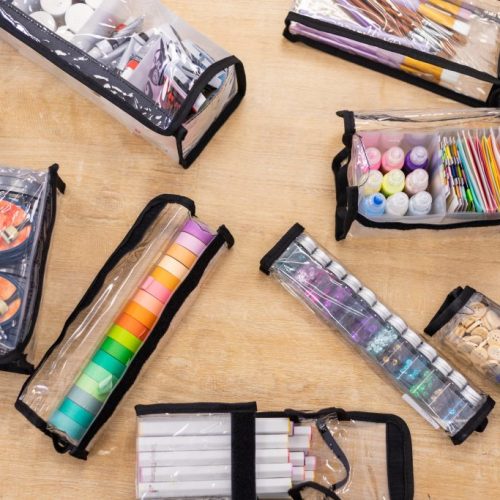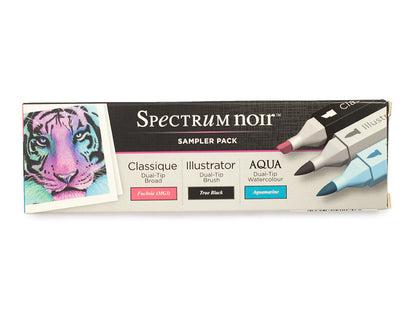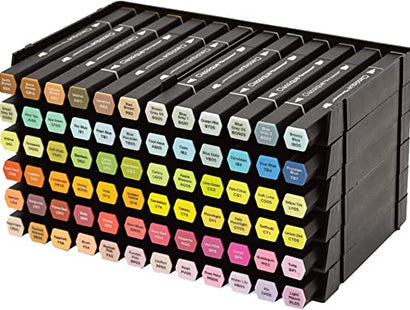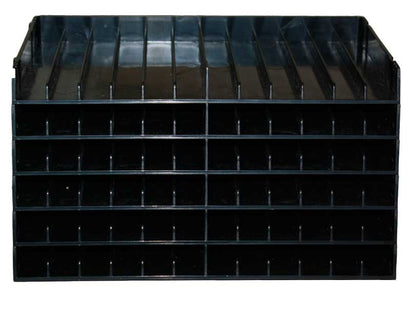Back to Basics – Why you need a 4 Section System
- Read time: 8 minutes
- Written by: Crafters
What better place to start than at the beginning. The key to being organized is having a system that is easy to use, easy to remember and easy to stick with. Think about your system as a foundation – it’s the thing that gives stability, ensures longevity, and provides security. Many of us have started an organization task based on a specific storage container or space without ever considering a “system” for organizing.
In these situations what we’re actually is doing is “storing” or “containerizing”, we’re not actually organizing. To be organized you must: function within a formal structure (a system), leave nothing out (take into consideration all the parts, pieces and uses), and be efficient in arrangement and function.
or·gan·ized:
1. Functioning within a formal structure
2. Formed into a structured or coherent whole
3. Methodical and efficient in arrangement or function.
Since my goal is to keep the information short, easy to read and understand in small pieces, today, I’m only going to tackle the first part of the definition – “Functioning within a Formal Structure”.
The formal structure we use for organizing our craft supplies is called the 4 Section System – a simple name for a very formal structure. Don’t be overwhelmed – formal doesn’t mean difficult. In fact, in this circumstance the formality of the system makes things very simple.
Think of organizing your supplies into these 4 major categories:
- Alphabets, Numbers and Punctuation Marks
- Themes and Sentiments A-Z
- The Calendar Year
- The Rainbow
These are large categories that will encompass a huge variety of products and ideas, but at the same time, they are very simple, which makes it very easy for your brain to connect to them. Let’s talk a minute about how the brain works. Your brain stores information by the spider web method, which means that one thing connects to another thing (or maybe several other things) to get you the information you need.
As an example – you walk by a restaurant and smell something delicious. Your brain spider webs around trying to define that smell. You remember it from being a kid – you remember your mom putting big dollops of sour cream in it – ah… Beef Stroganoff! You may or may not realize the route your brain has taken to get you to the answer, you just know you’ve got the answer.
If we organize by what comes without thinking, we tend to “containerize” rather than “organize.” This is what happens when we just put things in a box on the shelf without “thinking” about:
- How will I remember what’s in this box?
- How will I get things out of the box?
- How easy will it be to put things back in the box?
- How easy will it be to direct someone else to the box?
- How easy will it be to take the things that are in the box to a crop or class?
Do these questions seem overwhelming and exhausting? When you have a good system in place that addresses them, they’re answered without being asked because you’ve already thought about them. That is the beautiful thing about the 4 Section System – the questions are answered. So let’s talk about each section in detail and address some of the common and not-so-common questions that come up.
Section 1 – Alphabets, numbers and punctuation marks
This is the place to sort, organize and store all of your alphabet stuff that isn’t theme or sentiment specific. It doesn’t matter what type of product it is, if it’s alpha numeric and not theme specific, you’re going to find a way to store it (or a representation of it) in this section. Because this section is about letters and words, I think about it as a whole – anything that relates to non-specific letters and words. This means things like Journaling Templates or Title Templates, Journaling Stamps, etc. are also going to be represented in this section.
Common questions: Should I group my alphabets by color in this section? No, group your alphas by size. This will make it easy to find the size you need quickly and easily. It will really help when you’re trying to spell something out, but the particular color you want doesn’t have all of the letters you need. Having your alphas grouped by size will make it easy to see that you’ve got the same font in a different color.
Should I separate my chipboard type letters and put all of the “a’s, b’s, c’s together? Yes and No. I prefer to keep my chipboard type letters together by type and size – again, that makes it easier to know what I’ve got in that particular size category. With that said, I will separate abc, def, ghi, etc. – into individual pockets.
Section 2 – Themes and Sentiments A-Z
Baby, Birthday, Camping, Family, Graduation, Outdoors, Retirement… All of these categories belong in your second section. The categories are based on what YOU scrap/craft about – everyone’s will be different. Put them in alphabetical order so they are easy to find, easy to use, easy to put away, and easy to add new items! Are you seeing a pattern – EASY is important when things are easy we get them done.
Common question: Should I combine my cardmaking, mixed media and scrapbooking supplies all in one system? – YES! All of these things can be used in all of these crafts. No matter what type of craft you are doing, you are always working with a particular idea in mind. If you’re making a birthday page, a birthday card, a birthday gift bag, or a birthday canvas – you’re going to find all of the supplies for that particular project in one place – birthday.
Section 3 – The Calendar Year
January, February, March… Winter, Spring, Summer, Fall… you can use either or a mix of both in The Calendar Year Section. Grouping products together by month or season is really helpful when it comes to maximizing your use of seasonal products.
Common question: Why do I need a Calendar Year Section? Why can’t I just put Halloween under “H”, Thanksgiving under “T” and Autumn under “A” (or Fall under “F”) – then I could eliminate this whole section? In order to get the most use out of your supplies, it’s important to keep things together that could be used together. If you separate Halloween from Fall and Thanksgiving, you’ll have to look in multiple places to find things like leaves and pumpkins that could work on any of those pages or projects.
Section 4 – The Rainbow
ROYGBIV and then some. This section is the perfect place to store everything from Eyelets to Flowers. This is where you’ll store anything that doesn’t fit into one of the first three sections. These things will get grouped together by color – YIKES! Does the idea of storing your flowers in the same container as your glitter, and your ribbons in the same container as your bottle caps, give you hives or make you nauseous? I’m here to tell you nothing horrible will happen when you let your embellishments mingle. In fact, you’ll be delighted with the outcome. There are three really great things that happen when you store your embellishments by color.
- You can find what you’re looking for so much more quickly. Need a blue brad? Flip to the Blue section and bam – there it is.
- You’ll use more of your products, but you’ll also use more of your knowledge. Look back through your scrapbooks, cards or other projects. You’ll find that your projects reflect the most recent technique or product type you’ve learned to use. They reflect whatever is easiest to grab on your workspace, which is usually the newest thing. Have you ever heard Jerry Seinfeld talk about the stages of garbage? Well, there are stages of craft supplies too.
- Lastly, you’ll become a better designer. Instead of thinking this page needs a “blue brad” you’ll begin to think differently, “This page needs something blue and textured.” Flipping to the blue section will inspire you to use more in different ways.
Happy crafting,












